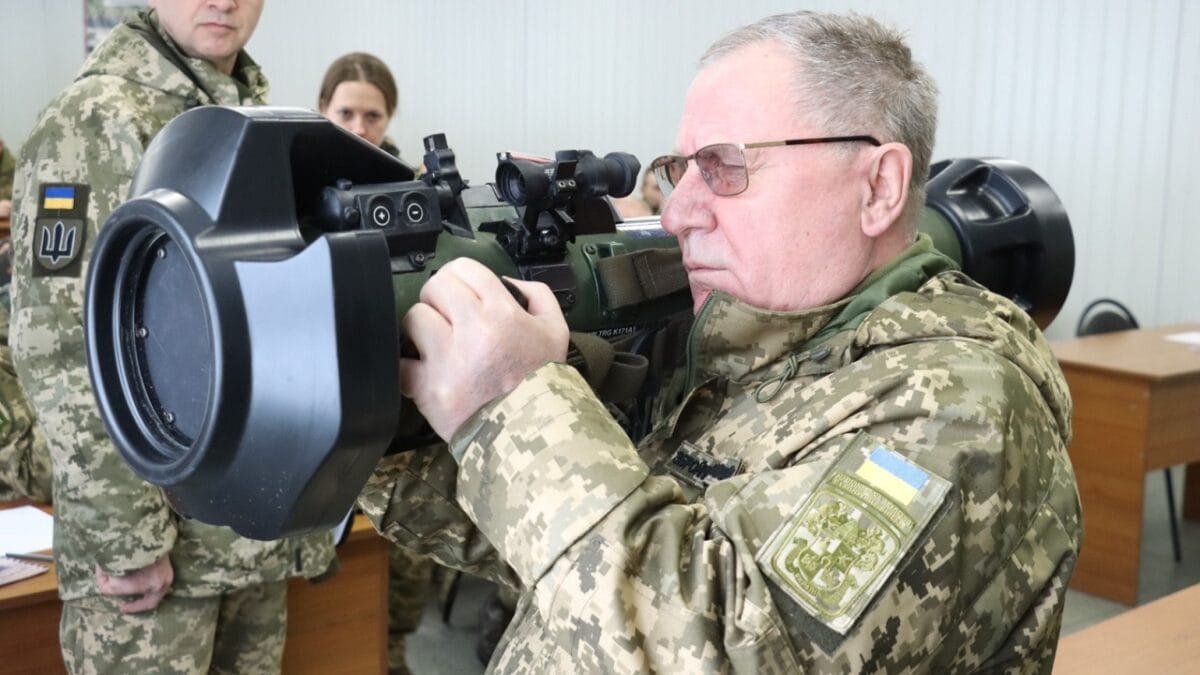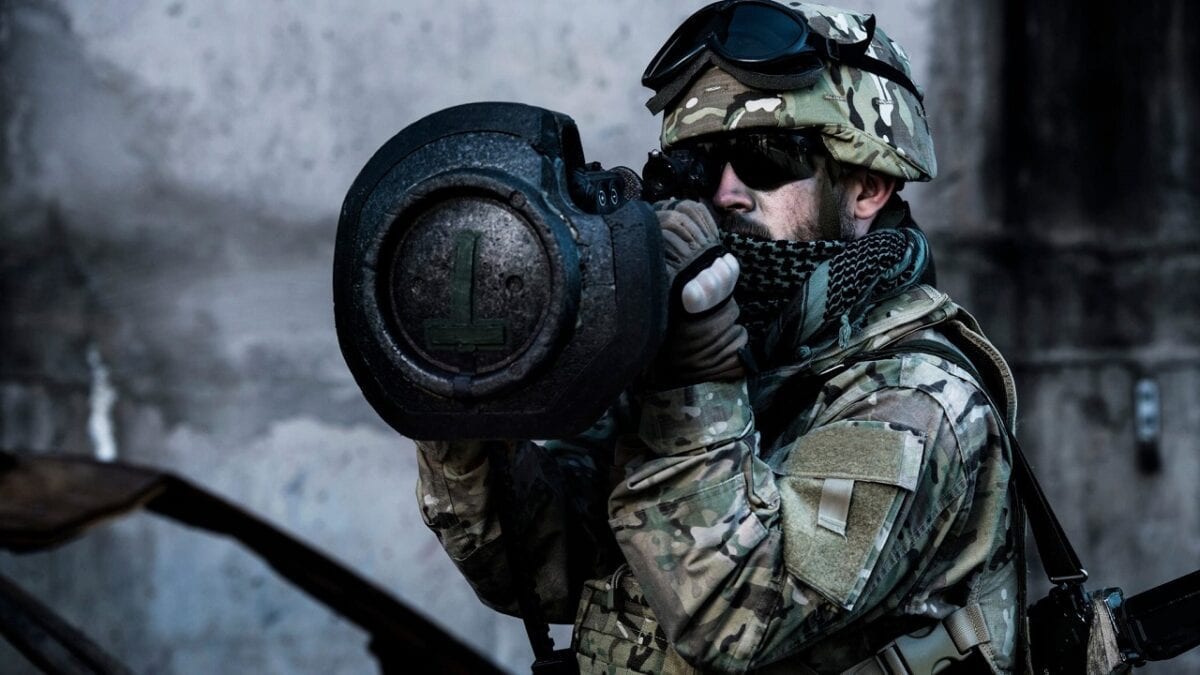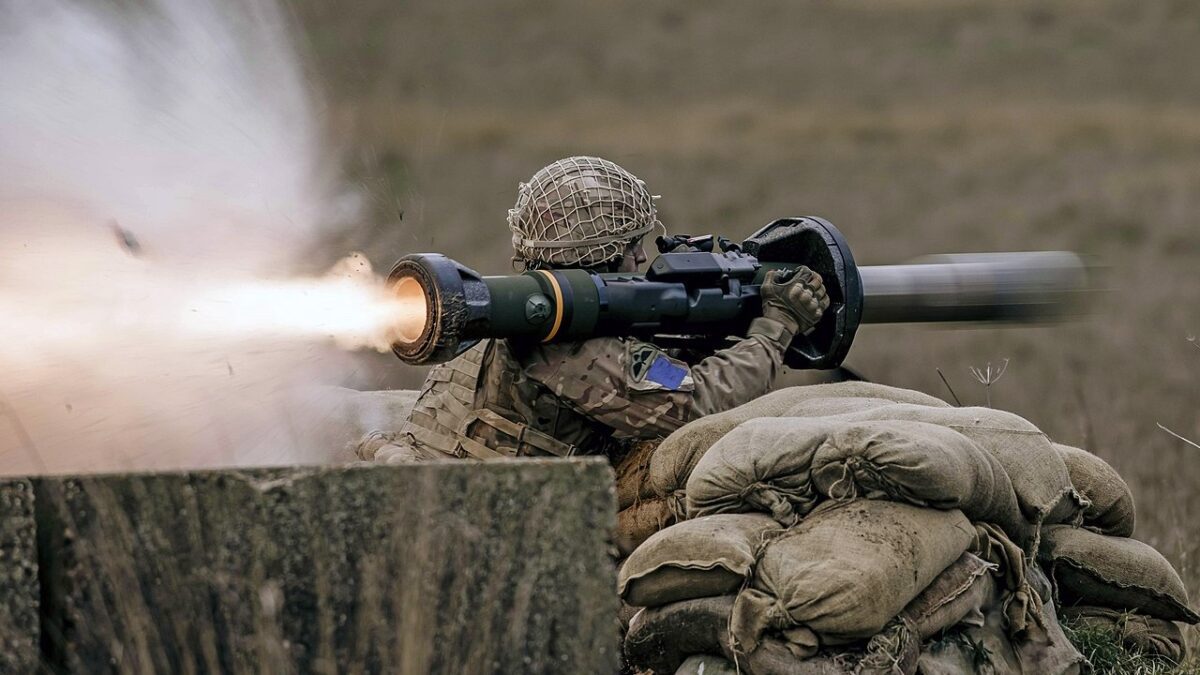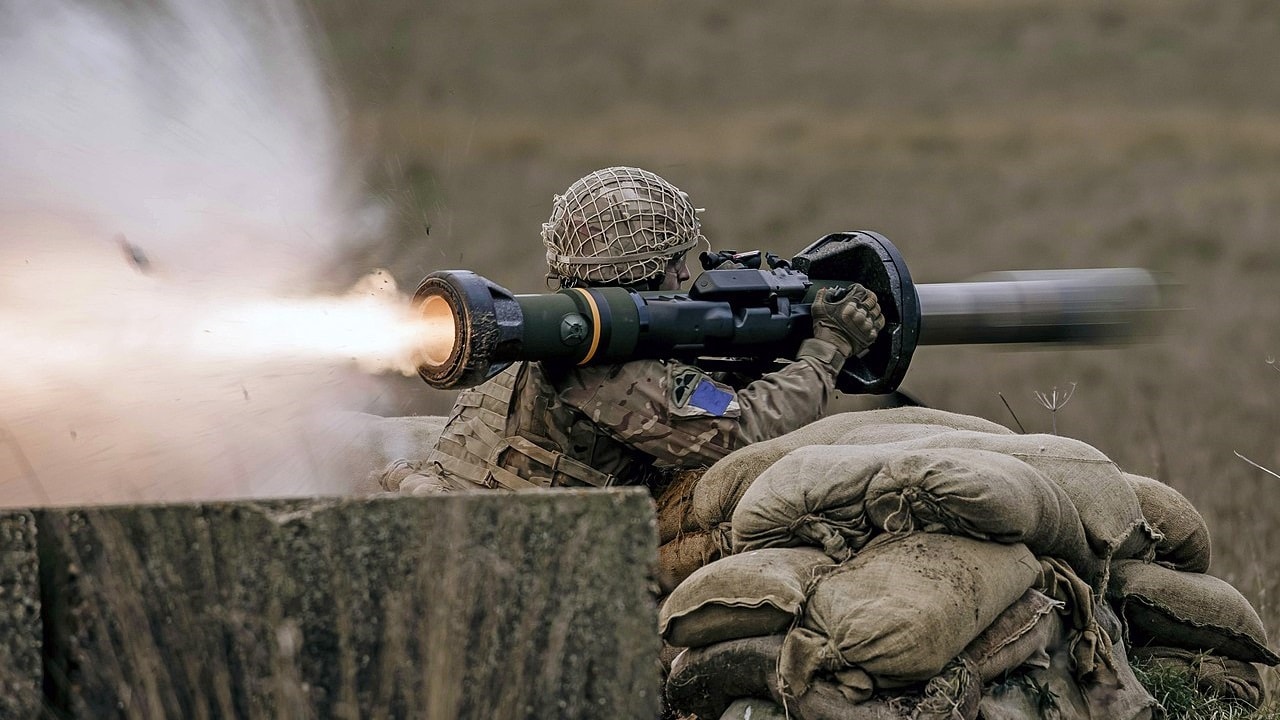The British government has provided more than 5,000 NLAW or Next Generation Light Anti-Tank Weapons to Ukrainian fighters. The launcher expends “fire and forget” missiles at unsuspecting Russian tanks and armored vehicles. Their success on the battlefield cannot be overemphasized. They can blow through the best armor Russian tanks can field. Old model tanks that Vladimir Putin’s forces are bringing out of storage are no match for an NLAW blast.
(Check out our new YouTube channel for amazing defense and national security videos. Above is one example we created. )
NLAW Becoming a Household Word
This Twitter video from October 2 found here shows the outcome of an NLAW strike against a Russian tank that had explosive reactive armor. This is evidence that the NLAW is alive and well. Like the Javelin, the NLAW is influencing pop culture in Ukraine. There is a painting here from October 3 that features a gigantic Ukrainian soldier carrying an NLAW who dwarfs the tiny Russians who are dying on the battlefield.
Short and Light
One of the best advantages of the NLAW is its portability. At three feet and four inches long, it has an overall weight of 28 pounds. Compare that to the weight of a Javelin at 49 pounds, and you have a weapon that any soldier can carry and fire. The launcher comes with a sling so fighters can tote it and a rifle at the same time. The shoulder-fired launcher creates a minimum of back blast due to its dual soft-launch guided system. The single-use NLAW has an effective range of 2,625 feet and a maximum range of 3,300 feet.
Shoot and Scoot
Soldiers need only a few seconds of continuous aiming after firing the weapon with its predicted line of sight targeting. Then the 150mm high-explosive anti-tank round streaks towards the tank or armored vehicle. The operator can move to a different location and the enemy doesn’t know where the shooter is located.
Good in Cities and Rural Areas
Urban combat is perfect for the NLAW as is rural fighting in fields that are surrounded by woods in which soldiers can hide in covered and concealed areas to line up a shot. The launcher can attack the top of a turret – usually the weakest part of a tank – or use it in direct fire mode – a blast that can destroy a bunker or emplacement.
Quick to Train; Quick to Hide and Fire
A representative from the manufacturer SAAB said, “With NLAW, you don’t need a platoon to attack tanks,” he says. “You can train an ordinary soldier to use the system in an hour. And then you can have NLAW-equipped soldiers across the entire environment waiting for a tank to advance. There could be an NLAW-equipped soldier behind any rock or bush.”
Attacking Tank Columns Early
Russian forces found out the hard way that the NLAW was a deadly system earlier in the war when long columns of tanks rolled down roads. An NLAW could take out the lead tank and the rear tank. This created traffic jams. Then the infantry called in artillery or drones to finish off the surviving tanks who were stuck in place.
Russian Tank Design No Match for NLAW
The design of Russian tanks plays right into the hands of the NLAW. As Army-Technology noted, “the charge may ignite the vehicle’s fuel or its ammunition, causing a catastrophic explosion and the loss of the entire vehicle and crew. This effect is often observed in Ukraine, as the design of Soviet-era tanks, which place the crew and turret on top of 22 rounds of ammunition and their propellants, means that the ammunition is particularly vulnerable to this outcome. It is often what leads to the ‘throwing’ of turrets from stricken tanks.”

NLAW anti-tank missile in Ukraine. Image Credit: Ukrainian Military.

NLAW. Image Credit: SAAB.
Transforming the Battlefield
The NLAW has helped change the war. Ukrainian forces were desperately outnumbered before the invasion, but the anti-tank weapon quickly took center stage by eliminating hundreds of enemy tanks. The United Kingdom is working with SAAB to make more and rush them to the battlefield. Anti-tank weapons were not something that Russian generals warned Putin about, and Russia had to find out just how vulnerable its armored forces are to anti-tank weapons. As Ukraine continues its counter-assault, it can depend on its dismounted infantry to use the NLAW to great effect and keep the momentum in Ukraine’s favor.

A member of 2nd Battalion, The Parachute Regiment fires a Next-generation Light Anti-tank Weapon (NLAW)…Paratroopers have demonstrated the firepower that they could bring to bear during combat missions as the British Army’s global response force. ..As the culmination of a course in support weapons skills, paratroopers staged a firepower demonstration on Salisbury Plain. ..The Next-generation Light Anti-tank Weapon (NLAW) is the first, non-expert, short-range, anti-tank missile that rapidly knocks out any main battle tank in just one shot by striking it from above…NLAW utilises predicted line of sight guidance and has overfly top and direct attack modes, and it is easy to use, making it a valuable tank destroyer for light forces that operate dismounted in all environments, including built up areas…It also has night vision capability and is designed for all climate conditions and environments..
Expert Biography: Serving as 1945’s Defense and National Security Editor, Dr. Brent M. Eastwood is the author of Humans, Machines, and Data: Future Trends in Warfare. He is an Emerging Threats expert and former U.S. Army Infantry officer. You can follow him on Twitter @BMEastwood. He holds a Ph.D. in Political Science and Foreign Policy/ International Relations.

